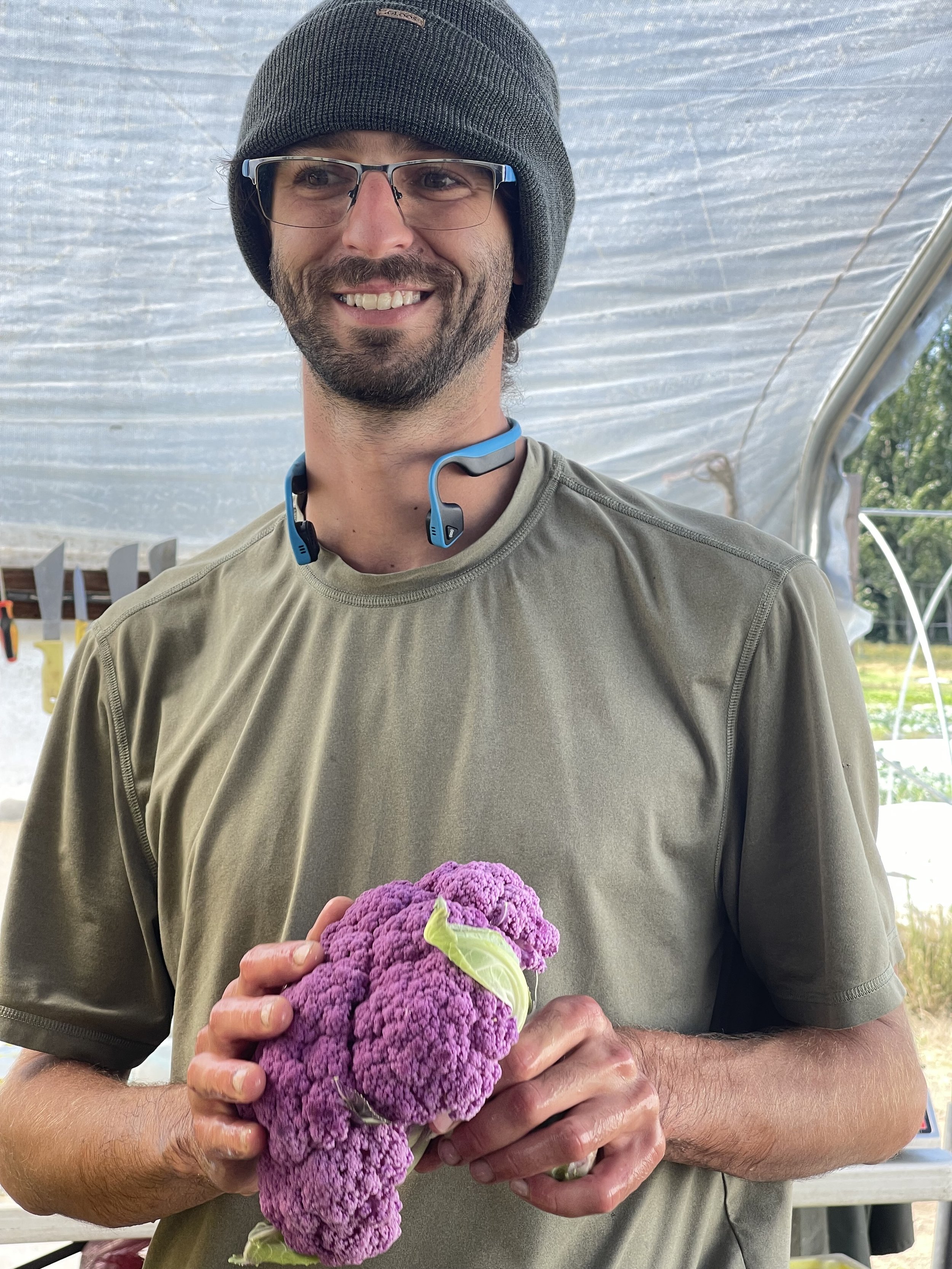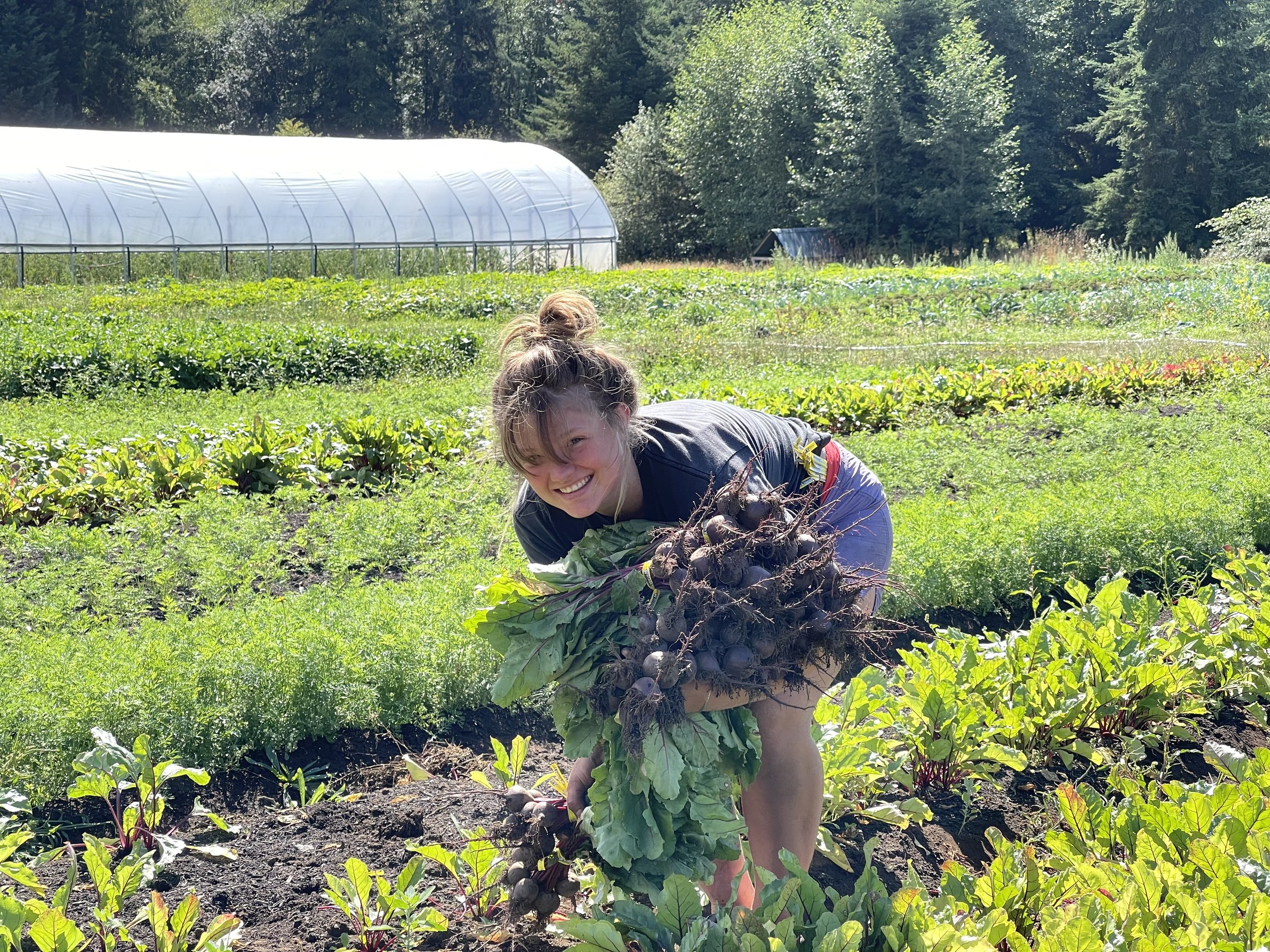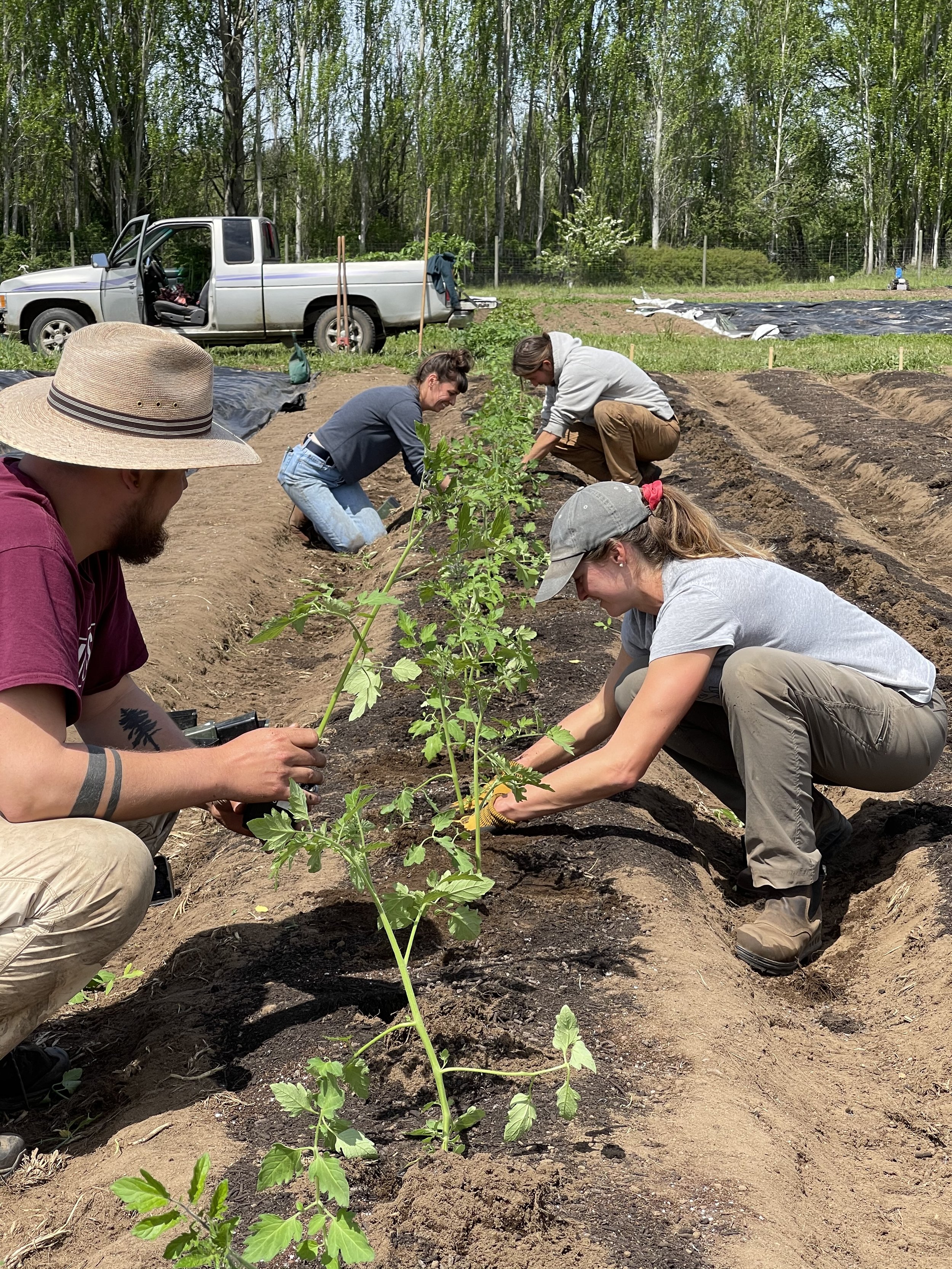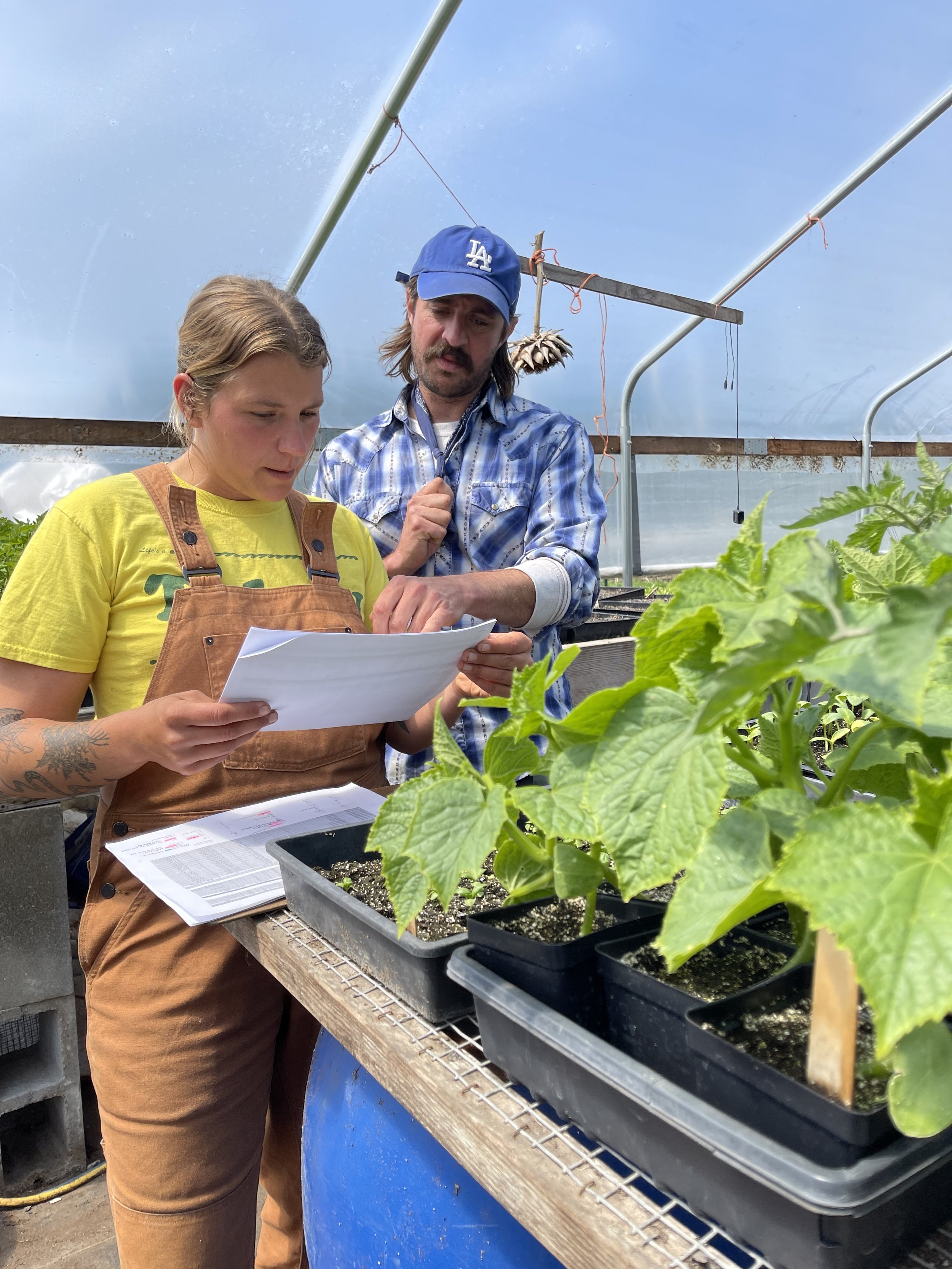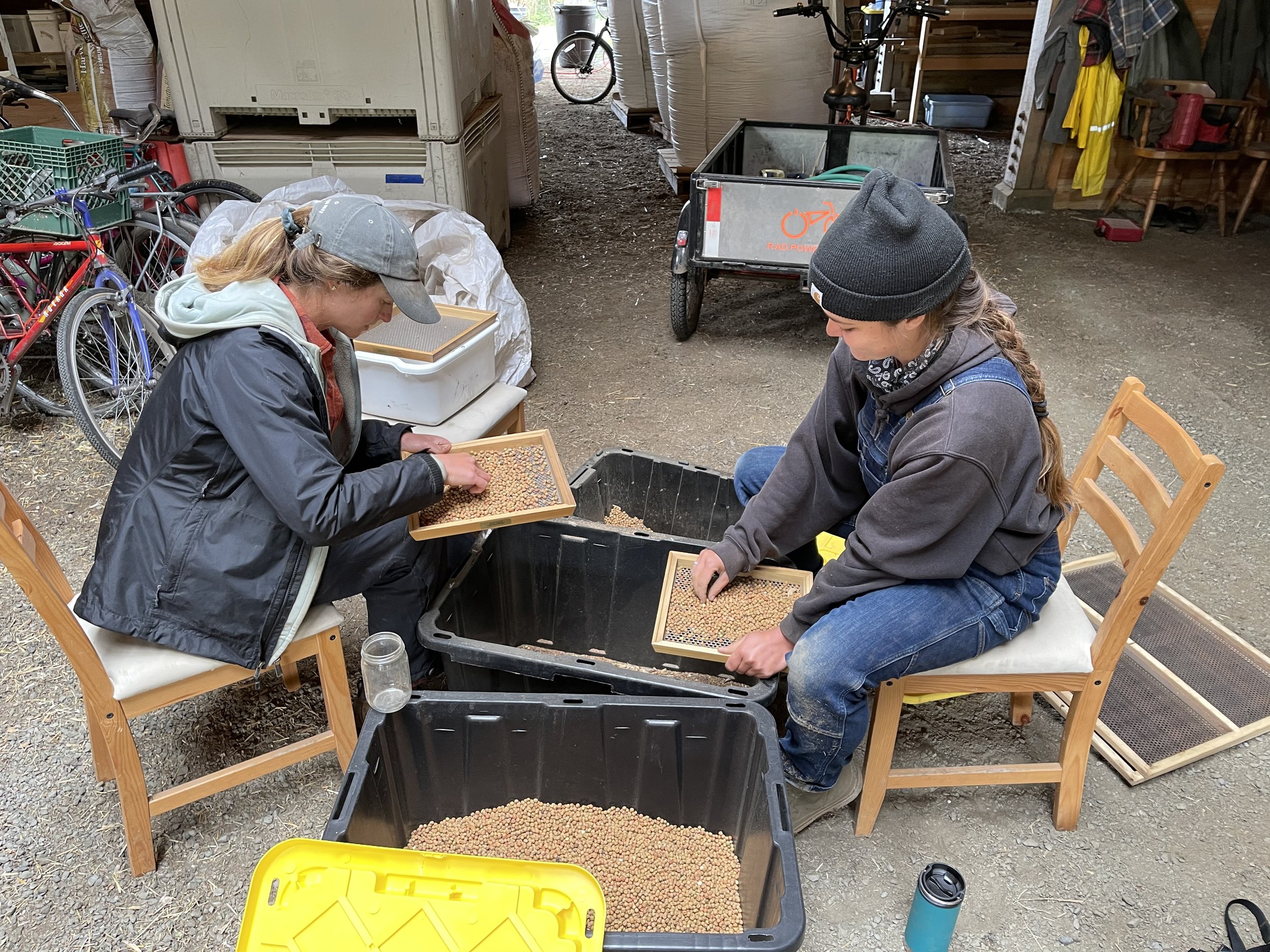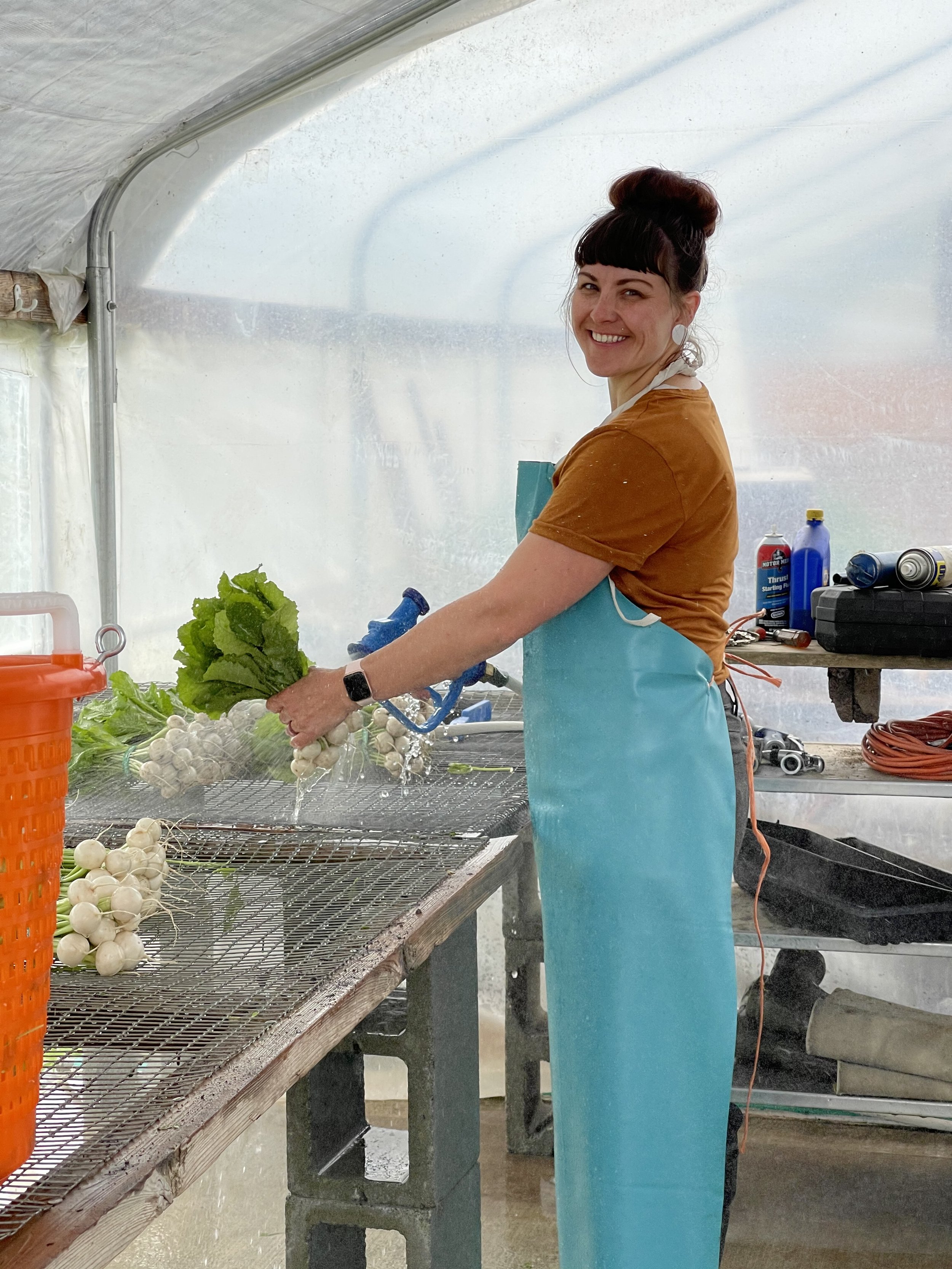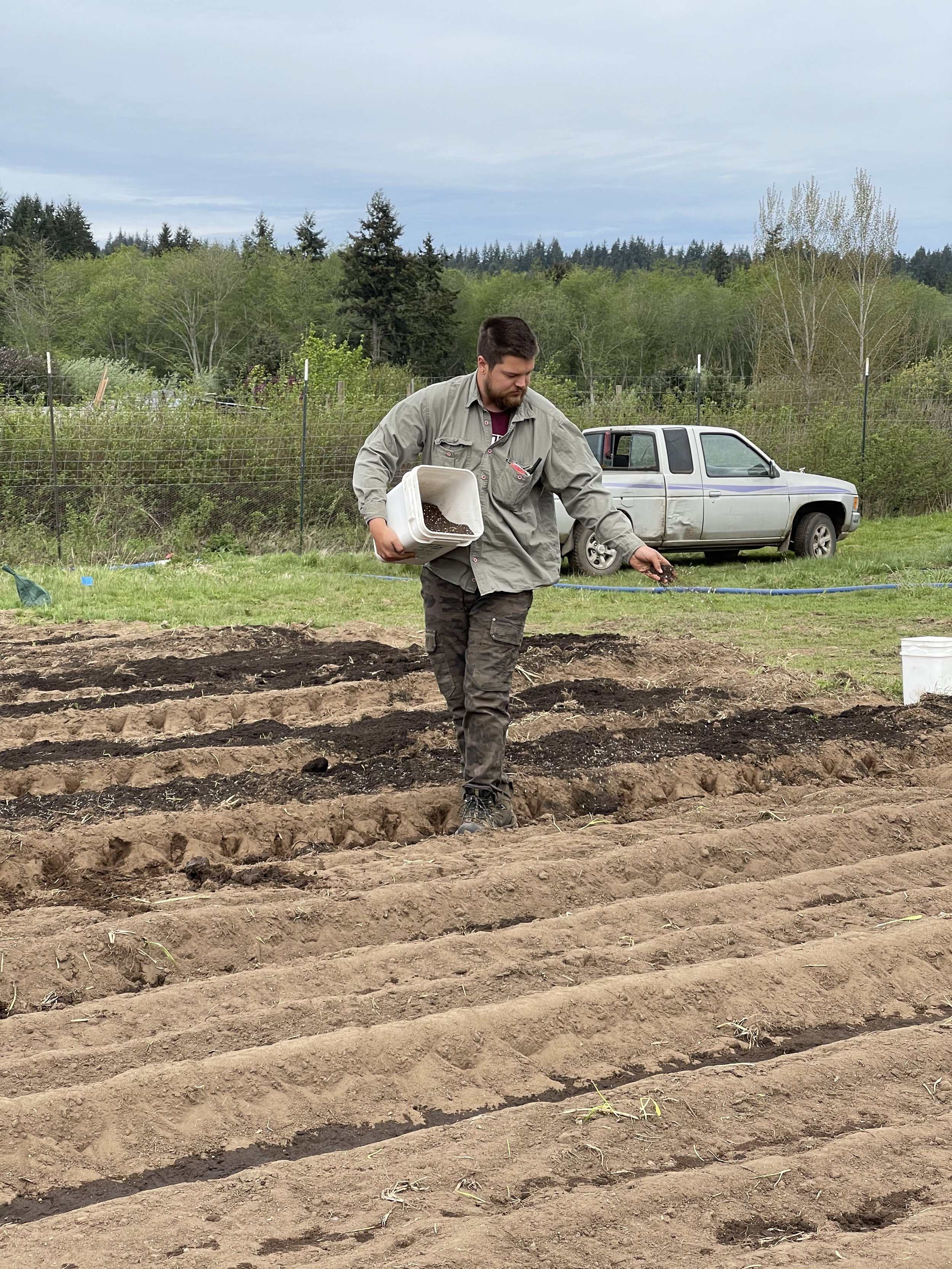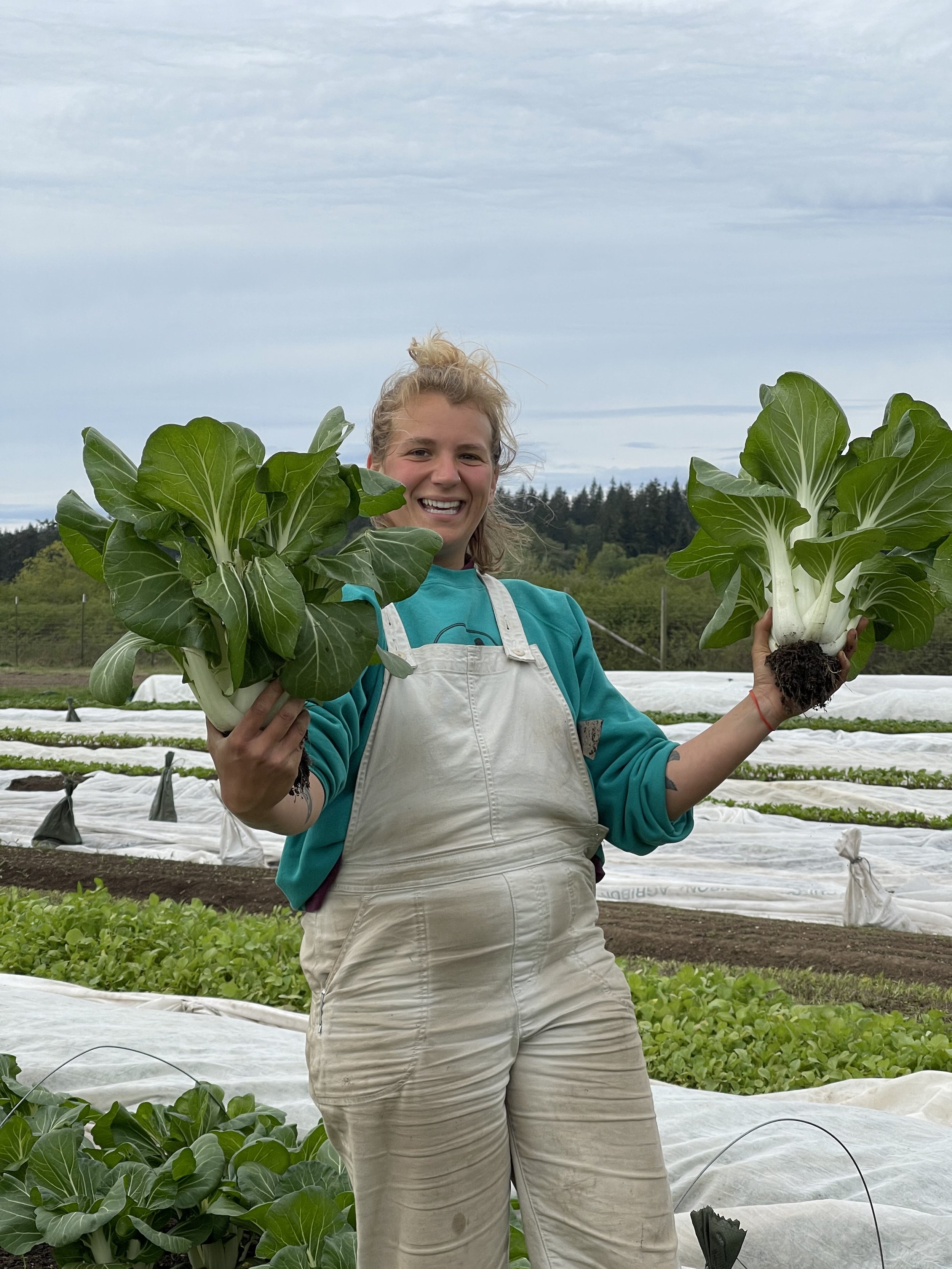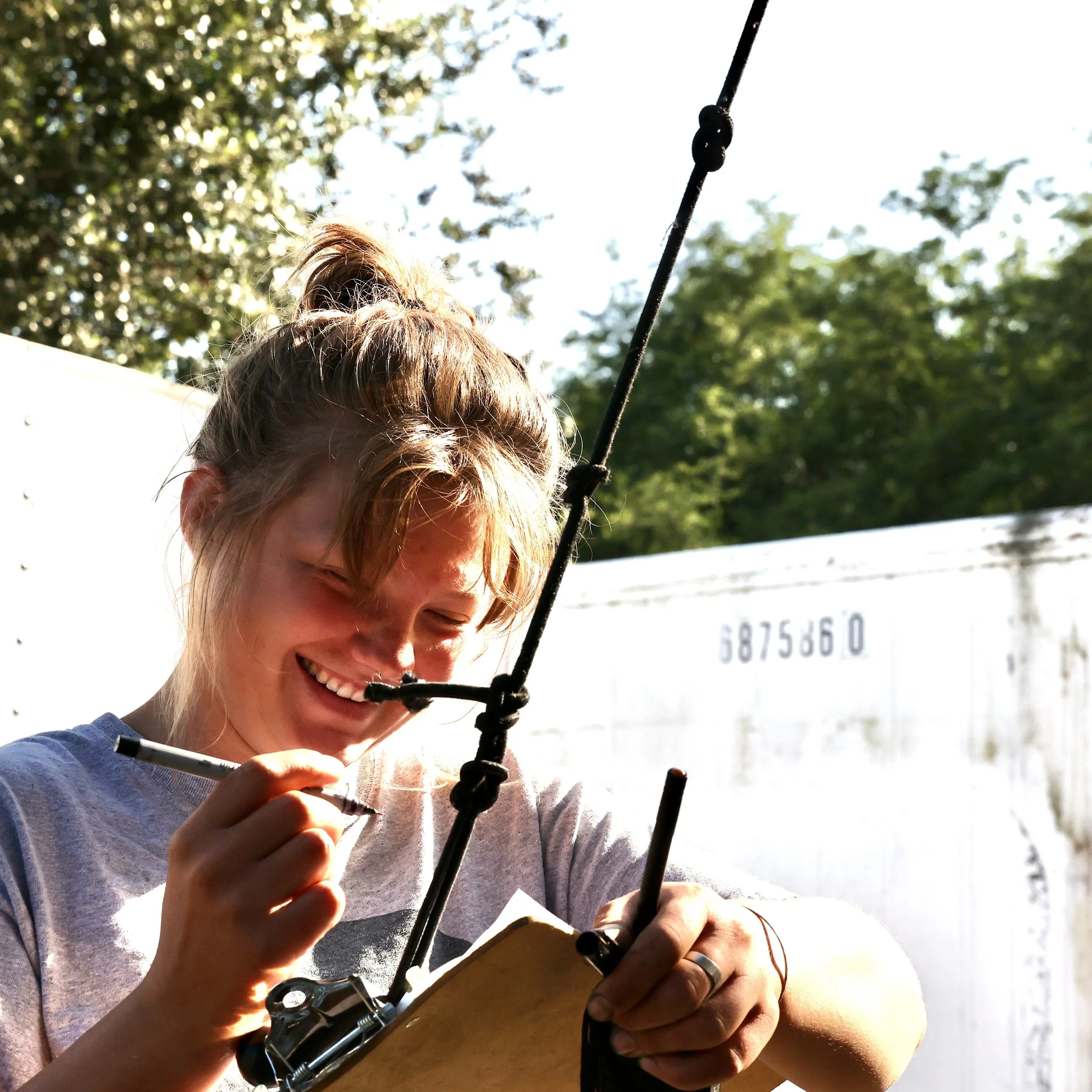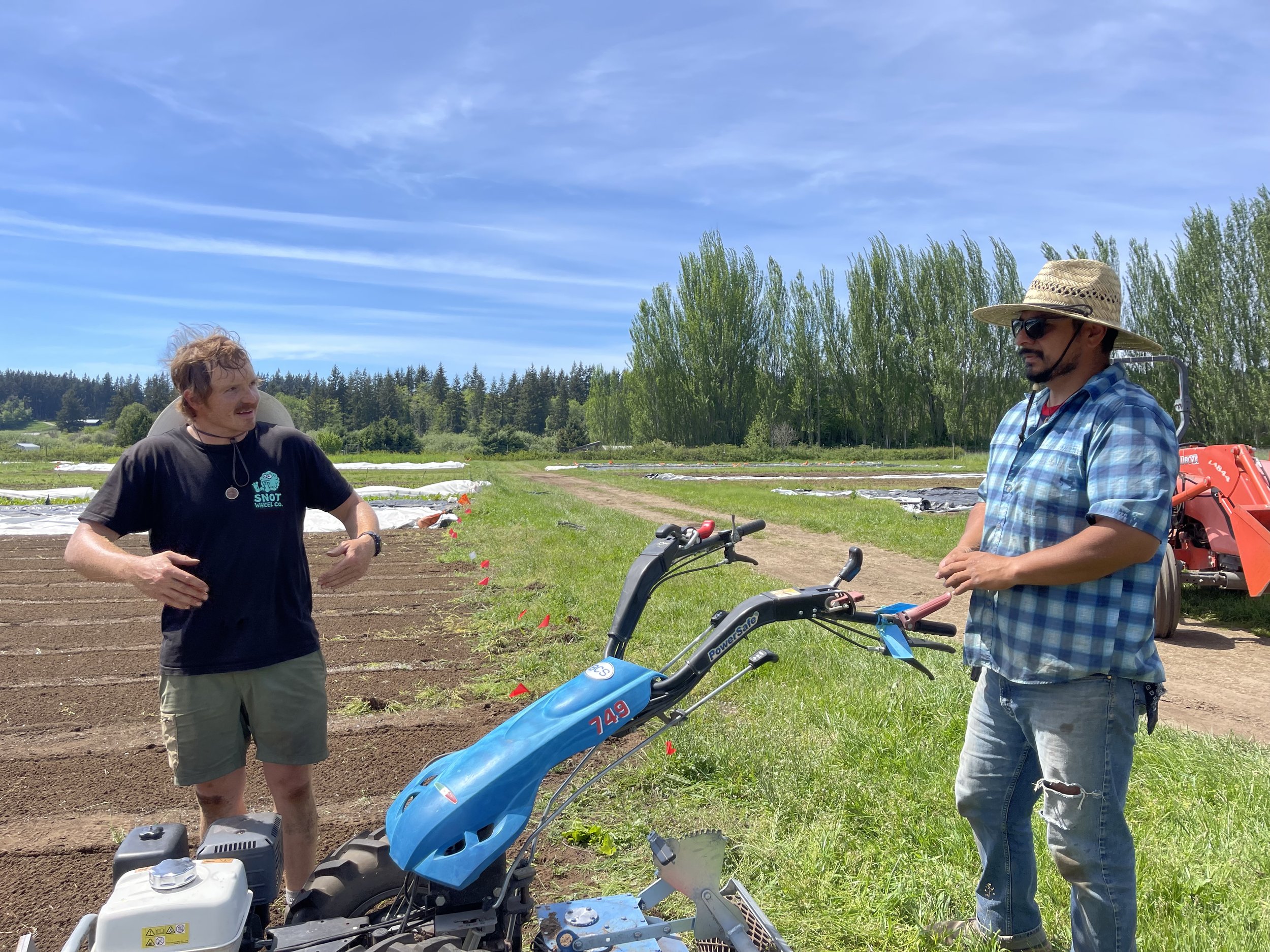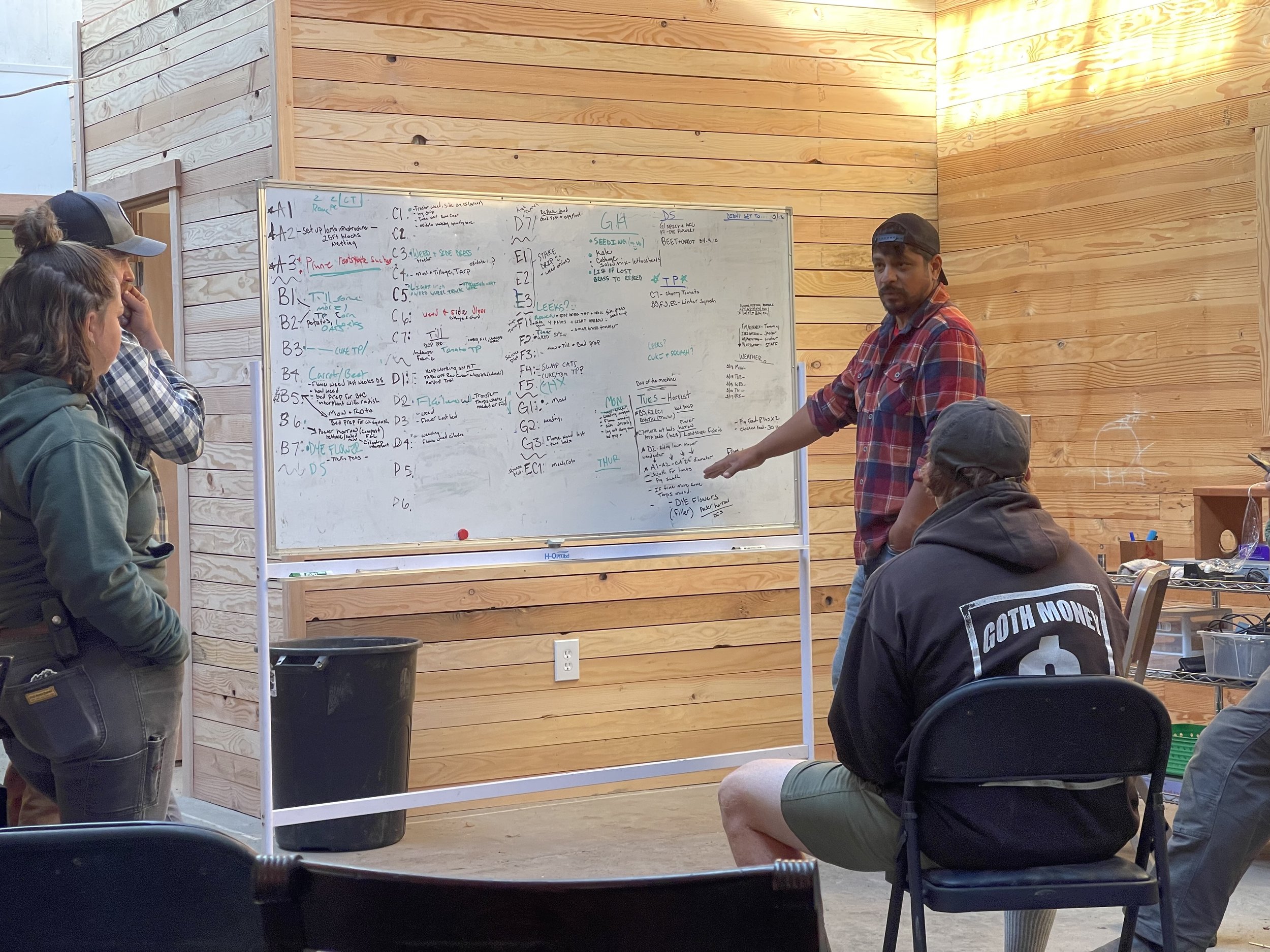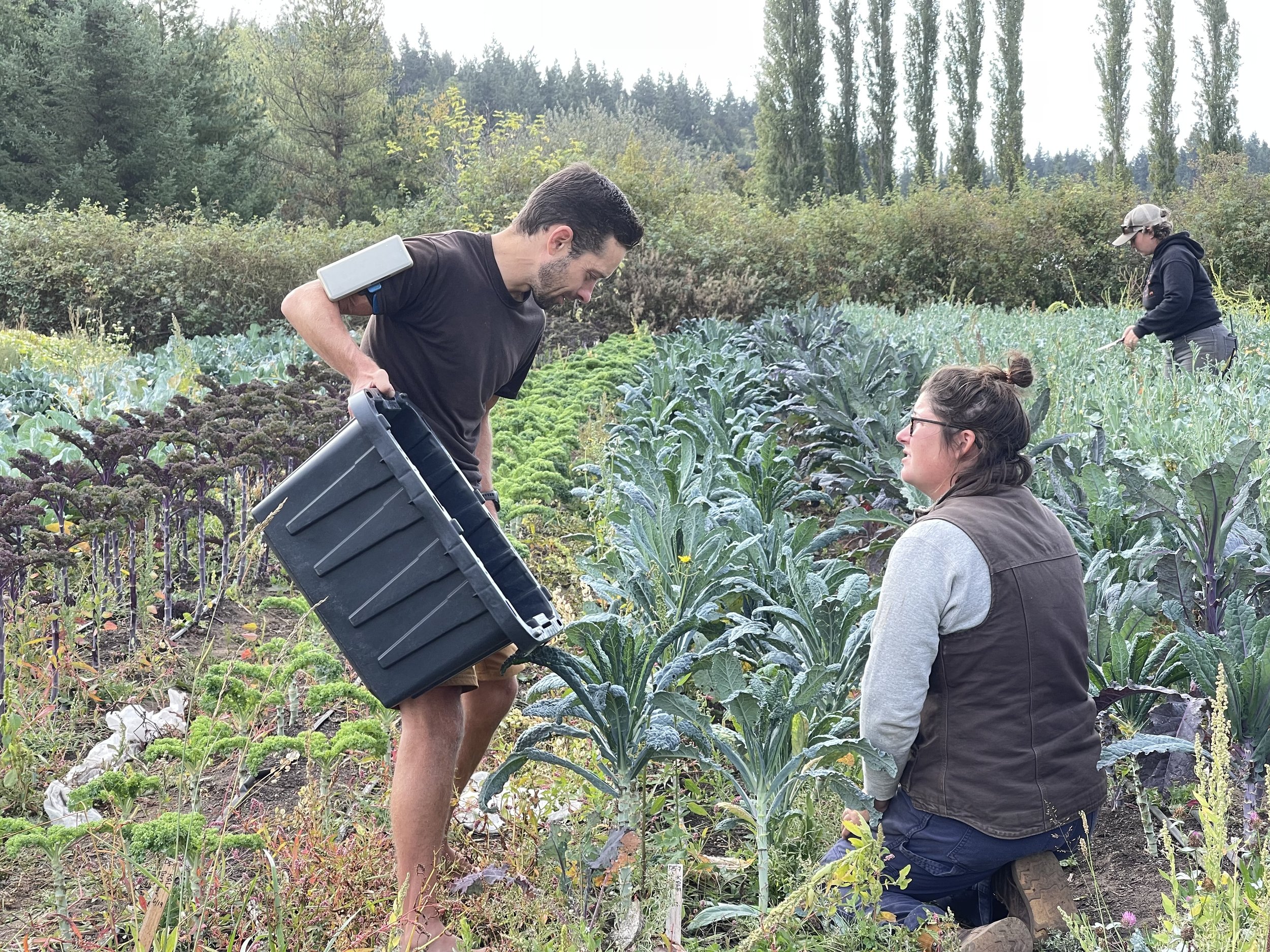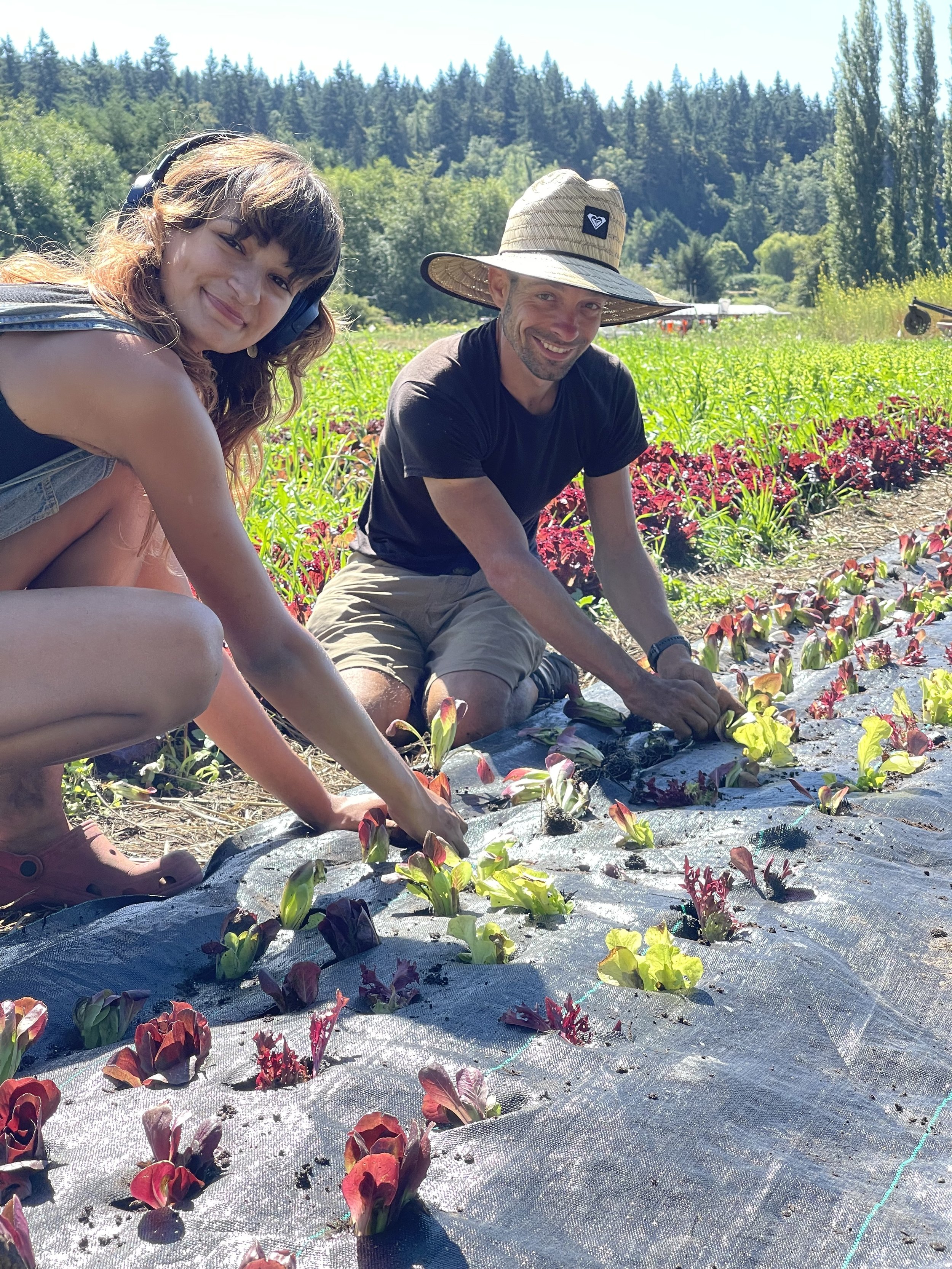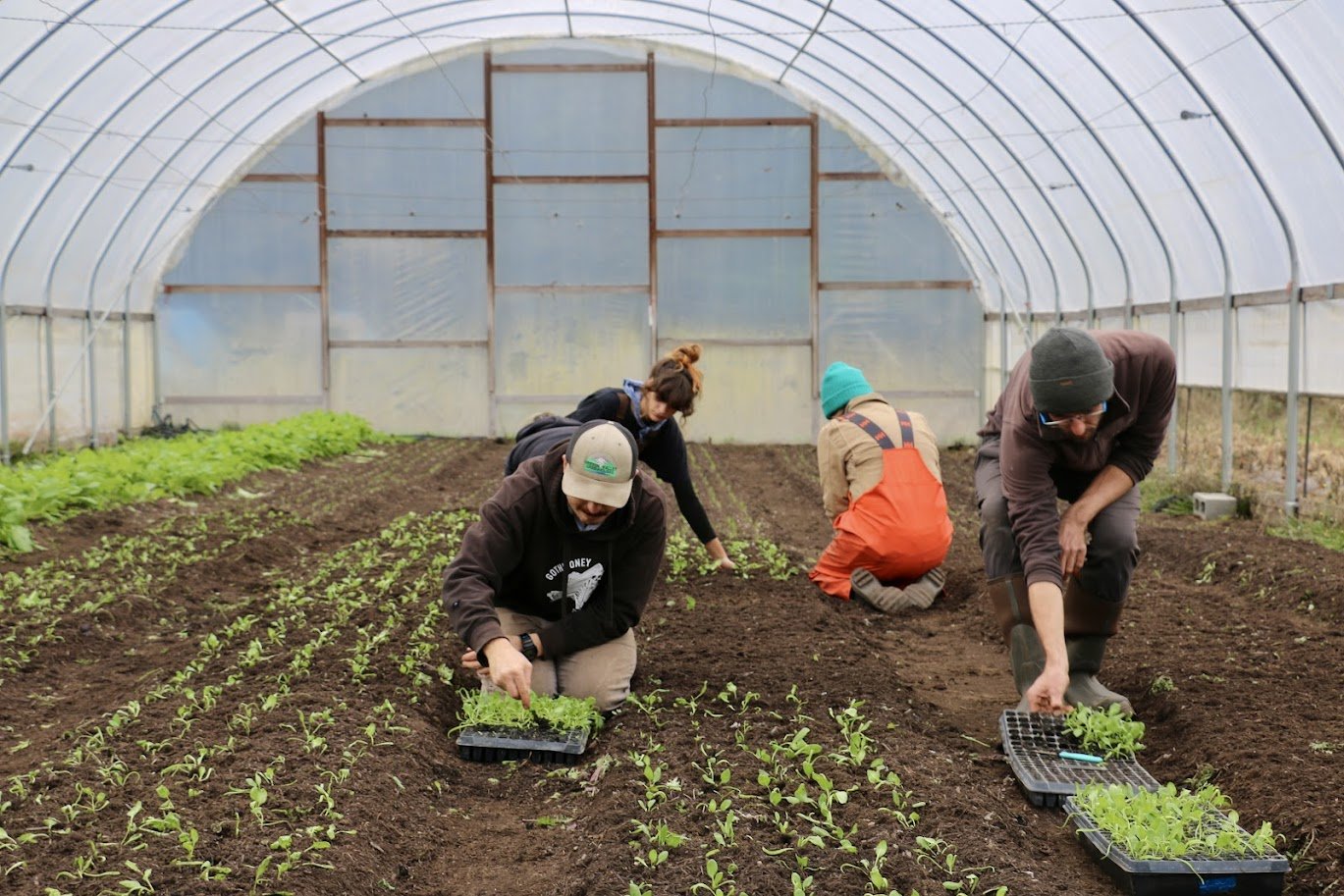
APPRENTICESHIP
7-month deep dive into learning to manage a community scaled farm
$1500 fee, only 1-2 accepted per year, application and interview required, apprentices paid $16.66/hour
Growing food at a community scale is a deeply honorable profession that is becoming more valuable by the season, yet one with tight profit margins and little room for errors. It’s important for beginning farmers to be prepared for the wide and wild diversity of challenges and opportunities that can present themselves in a single growing season.
There are many robust undergrad and online/virtual programs out in the world for folks like you to learn the basic theories and approaches to farming. So that is not what we have focused our work on at this time. Instead, we have set up our community-scaled production farm as something more akin to an apprenticeship program, designed for those who have already completed some form of academic training and are now ready to practice the farming skills you can’t learn on-line or in a classroom…critical thinking, decision-making under pressure, prioritization of tasks, customer relations, strategic planning for the long-term health of your farm, and more.
The application process is competitive, and the training requires a serious commitment on the part of those who accept a place in the program (only 1-2 will be placed in 2025). If you are accepted into the program, on April 7th you become a 40 hr/week employee, paid at WA State minimum wage ($16.66/hour), with a list of expectations and responsibilities. You will work with staff to prepare the soil, organize materials and supplies, fine-tune the equipment and infrastructure, and finalize the crop and marketing plans for the year. You will continue throughout the year, progressively learning more about the implementation and management of a growing season. This work evolves into a deeply participatory season of cultivation, seeding, transplanting, weeding, problem-solving, harvesting, distributing, research, and evaluating. You will be expected to participate fully in all aspects of managing the OFS farm, under the supervision of our Farm Manager and Field Supervisor. Successful completion of the program involves the creation of your own farm business plan and a presentation of that plan to the community.
Coursework
The 7-month Intensive includes our Business Planning courses, presentation of your “plan” at the culmination of the season, and 8+ classes on some of the core elements of Regenerative Ag (i.e. soils, livestock, seed). The fee for the Apprenticeship is $1500, with apprentices paid WA State Minimum Wage for hours worked. A housing option in shared cabins, with access to a common space for showers, kitchen, and relaxation is available for $200/month.
Field Learning
Other topics are explored via discussion and problem solving as they come up during the season and may include irrigation theory, crop planning, cover cropping, harvest & post-harvest handling & food safety, tillage, and others you likely will have encountered in you prior reading and coursework.
We are an annual vegetable crop production farm, operating at a community scale, so that is the work you will be doing with the Farm Team. Over the course of the season, you will feel the exhilaration as well as the pressures of our production goals. Short-term, Summer Block participants will be feathered in and out of the team and as they sharpen their own farming skills, they will help balance the work load and provide you with opportunities to practice delegation, supervision, and communication. We do not currently incorporate permaculture, silvapasture, alley-cropping, or biodynamics. We will speak to how to develop the scale and diversity of a farm over time in order to create more financially sustainable systems. Not every individual method we use is “regenerative” in and of itself, but we are committed to a regenerative approach to our long-term farm management. We use judicious tillage, incorporate cover crops and tarps, manage broiler chickens and sheep for soil and fertility development, produce and process seed, and our vegetable crops are certified organic by WSDA.
While our curriculum is broad, please let us know if there’s a specific topic you’re hoping to explore.
Applications are closed for 2025. Please check back in April to apply for the 2026 season.
“Being on the OFS Farm daily teaches you far more than an online education ever could.” - Stephen Frink, 2023 Graduate
